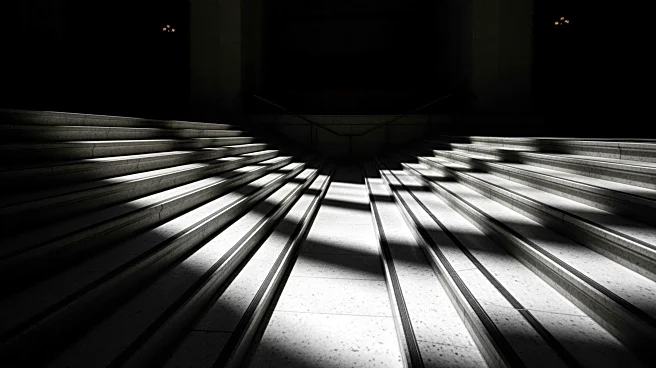What's Happening?
The Supreme Court's conservative justices were divided over whether to hear a case concerning the construction of a new prison in New Orleans. The majority of the court decided against hearing the case,
while Justices Samuel Alito, Clarence Thomas, and Neil Gorsuch expressed their willingness to review it. Justice Alito, joined by Justice Thomas, wrote a dissent criticizing the decision, arguing that the case warranted intervention due to errors by the Fifth Circuit. Orleans Parish Sheriff Susan Hutson had filed a petition for a writ of certiorari, challenging judicial orders mandating the prison's construction, which she deemed unlawful under the Prison Litigation Reform Act (PLRA). The United States opposed the petition, citing the necessity of ongoing relief to correct federal rights violations.
Why It's Important?
The decision not to hear the case leaves the lower court's ruling intact, impacting the financial and legal responsibilities of New Orleans regarding the prison's construction. The case highlights the ongoing debate over judicial authority in ordering prison construction under the PLRA. The division among conservative justices underscores differing interpretations of federal law and the role of the judiciary in such matters. The outcome affects local governance and the allocation of resources, with broader implications for how similar cases might be handled in the future.
What's Next?
With the Supreme Court declining to hear the case, the construction of the prison continues, as it is already significantly underway. The decision may prompt further legal challenges or legislative actions to address the issues raised by Sheriff Hutson and others concerned about judicial overreach. The dissenting opinion by Justices Alito and Thomas may influence future cases and discussions on the limits of judicial power under the PLRA.











